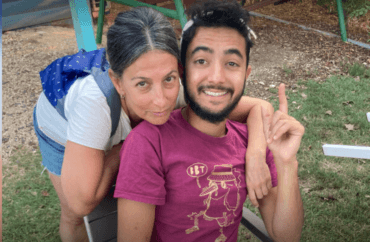The Orthodox Jewish “Schindler” You Never Heard Of
Dr. Julius Kuhl should be as famous as the protagonist of Steven Spielberg’s Academy Award-winning Holocaust movie, but after saving up to two thousand lives (Oskar Schindler saved 1600), this modest hero was not looking for recognition. Post-World War II, Kuhl settled in Toronto with his family where he ran a construction company and lived in relative anonymity until his passing in 1985.
While his children and grandchildren always knew of his righteous work, documents stored in Switzerland, Jerusalem and Washington which had been hidden for decades were only recently made public. Israel Singer, former Secretary General of the World Jewish Congress, was Dr. Kuhl’s son-in-law and shared his story with us.
Born in Galicia, eastern Poland, Kuhl grew up learning with the Lubliner Rav and lost his father at a young age. As the only child of a widow who wanted more for her son, “She sent him to her sister in Switzerland in order to acquire a better life than he would have in Poland.” In the interim, Kuhl put himself through college while getting semicha (ordination) and learning to be a schochet (ritual slaughterer). “He was a ba’al koreh in an old folks’ home from where he was fortunate enough to get food. He looked forward to one day being able to help other people.”
Kuhl got that chance soon after Germany invaded Poland. He was a 23-year-old recent grad with a PhD in Political Science and Law. He became the consul for Jewish and Minority affairs in the Bern embassy and worked for the ambassador. “He was hired because they needed somebody who knew how to talk to Jews who were immigrants and who were coming to Switzerland and the Polish Free Government wanted the support of Jews as well. In that capacity, he was able to issue emergency visas and emergency passports to people who appeared at the border.” He also worked alongside the representative from the Vatican, Archbishop Bernadini, who helped save and Jews as well. “They worked together, he was also his chess partner every week…as well as with the future Pope. They saved the Belzer Rebbe, among others.” They gave Polish Free passports to many who went through Istanbul and on to Israel.
With a taste for what an opportunity this was and the unique position he was in, Kuhl became passionate to do even more and his work was contagious. His neighbor’s friend, Mrs. Sternbuch, was the daughter of the chief Rabbi of Belgium. Once married in Switzerland, she took it upon herself to rescue as many Jewish children as possible, bothering anyone who would listen. Kuhl was pushed by Mrs. Sternbuch to save children – even in the middle of her own son’s bar mitzvah – on Shabbos! “She used to come to his office, wait outside, and would get him to go back in when they closed and get out two new passports, five new passports. It’s estimated by Polish documents that we had close to thousands of people that were saved this way.” Kuhl also worked with the Vatican, Central and Latin American countries to get Jews visas to those places and on to freedom. “Suddenly there was a whole network of people trying to get [other] people out.”
While Kuhl got involved with saving lives incidentally, he used his circumstances to turn history on its head. “He told me that had he had the opportunity, he would have saved more. He was a young, assistant diplomat who didn’t even realize that he could accomplish what he did.” At the end of the war, he became the same as all the other Jews, also in need of saving. “He eventually had to leave Switzerland for Canada.” Dr. Kuhl tried to get Jews into Switzerland up until the day he himself had to leave.
While Kuhl was modest, busy re-establishing his life and didn’t care about promoting his efforts, he was a great advocate of promoting Mrs. Sternbuch’s story to the frum community. He helped pave the way for a Mesorah publications book to be written about Mrs. Sterbuch: The Heroine of Rescue.
Kuhl went on to help build yeshivas in the communities in which he lived. “He didn’t turn his back on what he did during the war, he just decided that now it was time to build.” When hostages were taken in Israel in 1971, he flew to Israel himself to offer to pay the ransom and worked with the survivors afterwards. “You could say he thought we make a greater stamp on the world by building positively and looking forward.” While he had a doctorate, he was quiet and didn’t make speeches or write books. “He wrote a book for our family. He wanted our family to know where he came from…where they came from.” Singer has worked with Yad Vashem and Spielberg’s foundation to help survivors record their own stories. “The people who helped others should tell their stories, if not to the world then to their own families and later on they will be digitized…being silent is not a [valid] position.”
Singer’s wife, (Kuhl’s daughter) met a teacher in high school whose life had been saved by her father. He brought his passport in to show the entire school. “We’ve bumped into people whose grandchildren thank us…but it’s not just for us. This belongs to the general history of the Jewish people.”
If you found this content meaningful and want to help further our mission through our Keter, Makom, and Tikun branches, please consider becoming a Change Maker today.









